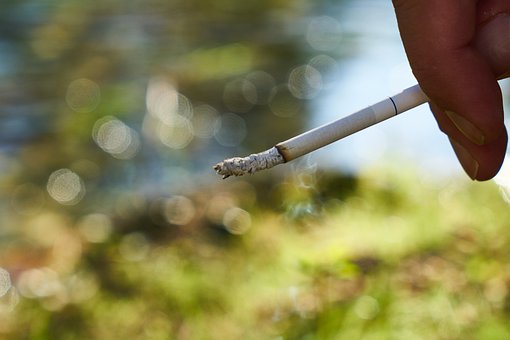Having to deal with toxic friends at school can be a difficult and emotionally draining experience, particularly when it’s someone you see every day at school.
Toxic friends can get you into trouble and that’s the last thing expected of you as a student.
It can be hard to know how to deal with the situation, especially if you still care about the person.
In this blog post, we’ll discuss how to recognize a toxic friend, the signs to look out for, and the best strategies for managing the situation.
We’ll also look at ways to take care of yourself and protect your mental health. By the end of this post, you should have a better understanding of how to deal with toxic friends at school.
With that said, before you start dealing with a so called toxic friend, there are some consequences of having them around;
Consequences of Toxic Friends in School

Having toxic friends in school can be a difficult and overwhelming situation. Not only can it have an impact on your own mental health and wellbeing, it can also have a negative effect on the relationships around you.
Some of the potential consequences of having toxic friends in school include:
-Strained relationships with family and other friends:
Toxic friends often have a negative effect on our relationships with other people, such as family members and other friends.
They can make us feel guilty for spending time with others, or cause us to feel like we have to choose between them and our other friends.
-Decreased self-confidence:
Toxic friends often make us feel bad about ourselves, which can lead to low self-esteem. This can leave us feeling worse about ourselves, and even more vulnerable to their manipulative behaviors.
-Lack of trust in others:
Having a toxic friend can make it harder for us to trust other people, as we may become fearful of experiencing similar negative interactions with them.
-Difficulty concentrating and performing well in school:
Toxic friends can be a major distraction and make it difficult for us to focus on our studies or perform well in school.
-Isolation from peers:
Toxic friends can also make it hard for us to form meaningful connections with our peers, as they may discourage us from spending time with other people or engaging in social activities.
When you consider all this consequences of having this friends around, it is best for you to know how to deal with toxic friends at school, and this is how:
Determine if the friendship is worth saving
When it comes to toxic friends, it can be difficult to decide whether the friendship is worth saving or not. It is important to consider the pros and cons of the relationship, and ask yourself if the positives outweigh the negatives.
For example, if the friend is always there for you when you need them but they are constantly criticizing you, ask yourself if the support they provide is worth the stress of their negativity.
You should also take a look at your own actions and behaviors. Are you enabling their bad behavior? Is there anything that you can do differently to improve the friendship?
If not, it may be best to end the friendship and look for healthier relationships.
No matter what your decision is, remember that it’s okay to put your mental health first. There is nothing wrong with making the decision to end a toxic relationship.
Talk to your friend about the problem

Having a difficult conversation with a friend can be incredibly challenging, but it’s important to speak up if you feel like your friend is behaving in a toxic way.
The goal of talking to your friend should be to express how their behavior makes you feel and to let them know that you won’t tolerate it.
When having this conversation, make sure to stay calm, be respectful, and avoid attacking your friend.
Start the conversation by making it clear that you value your friendship and want to address the problem. Then explain how the specific behavior has been affecting you.
It might be helpful to provide specific examples. For example, you could say, “I noticed you’ve been teasing me lately and I don’t appreciate it.
It makes me feel belittled and hurt.” Your friend might not be aware of how their behavior affects you, so be sure to point it out.
It’s also important to be open to hearing your friend’s perspective. Ask them why they think they have been acting this way and try to understand their point of view.
After understanding their perspective, explain why the behavior isn’t acceptable and make it clear that you expect things to change.
Set boundaries with your friend
When dealing with a toxic friend, it is important to set boundaries that help protect you and your emotional well-being.
This may involve setting limits on what you are willing to tolerate in terms of behavior or conversations. You should also decide when and how to end conversations if they start to become too intense or negative.
It can be helpful to have a clear idea of the type of friendship you want to have with this person, as well as the boundaries you would like them to respect.
For example, if they constantly criticize your decisions or behavior, make sure they understand that this is unacceptable and you will not tolerate it.
Take a break from the friendship
Sometimes, the best solution for dealing with toxic friends at school is to take a break from the friendship.
It is important to remember that taking a break does not mean ending the friendship permanently, it just means taking some time away from the situation to process your emotions and think about what is best for you.
Taking a break from the friendship can give you much needed space to clear your mind and assess your situation.
If you decide to take a break from the friendship, you should be clear and honest with your friend. You can tell them that you need time away from them to focus on yourself and that you still care about them as a person.
Final Thoughts
Make sure they know that this break is not because of anything they have done wrong and that you want to work on the friendship when you’re ready.
It is also important to make sure that you are taking care of yourself during this break. Taking a break doesn’t mean completely cutting off all contact, so make sure to give yourself enough space to heal and reflect on the situation.
Do things that make you feel good, such as spending time with people who are supportive and make you feel comfortable. Take this time to focus on yourself and evaluate how this friendship has impacted your life.
Taking a break from a toxic friend can help give you clarity on whether or not the friendship is worth saving. It is up to you to decide if and when it is the right time to reconnect with your friend.






